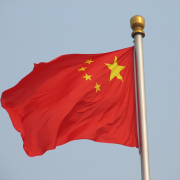China’s nation-wide work safety inspection is currently ongoing, and is being expanded to cover more regions. As a result, there is an increase in the number of factories in which production has been shut down or restricted. Compared to last month, the major production of herbicide and insecticide varieties have remained slow, though there is a sharp price rise in some products. Fungicides have risen sharply, as triazole and strobilurin fungicide products are largely produced in Jiangsu Province, where production is restricted and supplies are limited. Major varieties still remain slow, but there are signs of price rises for a majority of varieties. The extensive production shutdown and restriction of major product items have caused a surge in the active market for minor products.
Part of herbicide prices detailed as below:
|
Product(TC)
|
100% basis/ actual concentration
|
Price(000 RMB/ton)
|
|
2,4-D
|
98%
|
20.5
|
|
Mefenacet
|
98%
|
72.0
|
|
Oxadiazon
|
95%
|
330.0
|
|
Glyphosate
|
95%
|
24.0
|
|
Pretilachlor
|
95%
|
36.0
|
|
Acetochlor
|
100% basis
|
22.0
|
|
Mefenacet
|
98%
|
72.0
|
|
Trifluralin
|
97%
|
38.0
|
|
Quizalofop-p-ethyl
|
100% basis
|
260.0
|
|
Nicosulfuron
|
95%
|
380.0
|
Part of insecticide prices detailed as below:
|
Product(TC)
|
100% basis/ actual concentration
|
Price(000 RMB/ton)
|
|
Abamectin
|
100% basis
|
600.0
|
|
Malathion
|
90%
|
30.0
|
|
Profenofos
|
100% basis
|
70.0
|
|
Chlorpyrifos
|
97%
|
46.0
|
|
Phoxim
|
100% basis
|
38.5
|
|
Fipronil
|
95%
|
730.0
|
|
Chlorfenapyr
|
98%
|
350.0
|
|
Bifenazate
|
97%
|
490.0
|
|
Lambda cyhalothrin
|
96%
|
330.0
|
|
Acetamiprid
|
97%
|
160.0
|
Part of fungicide prices detailed as below:
|
Product(TC)
|
100% basis/ actual concentration
|
Price(000 RMB/ton)
|
|
Difenoconazole
|
96%
|
275.0
|
|
Pyraclostrobin
|
98%
|
193.0
|
|
Azoxystrobin
|
98%
|
370.0
|
|
Carbendazim(white)
|
97%
|
37.5
|
|
Thiophanate-methyl(white)
|
97%
|
32.0
|
|
Fluazinam
|
98%
|
365.0
|
|
Prochloraz
|
96%
|
175.0
|
|
Cyazofamid
|
95%
|
750.0
|
|
Diethofencarb
|
100% basis
|
150.0
|
|
Dimethomorph
|
98%
|
165.0
|
Source: Agropages

